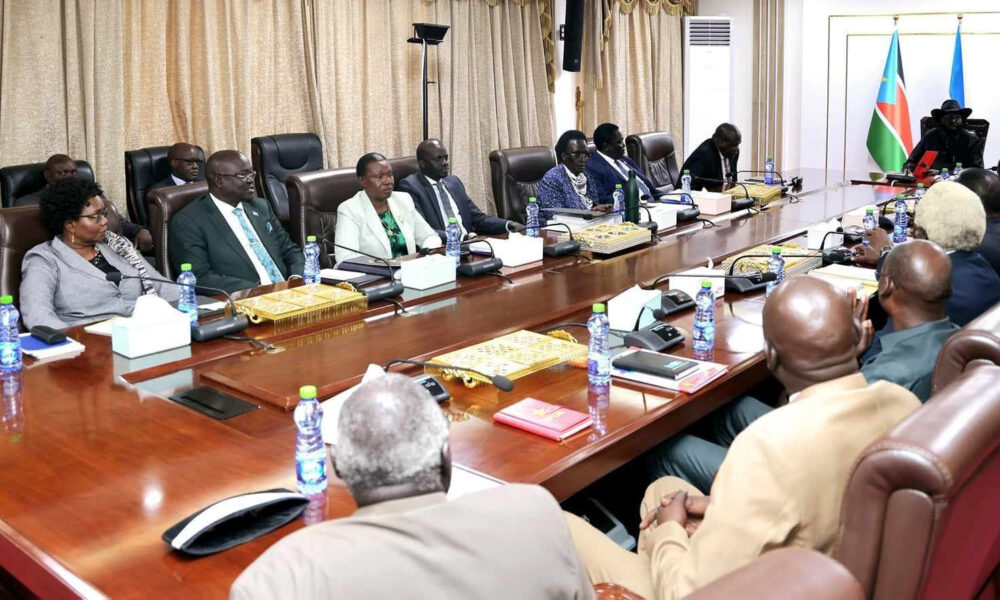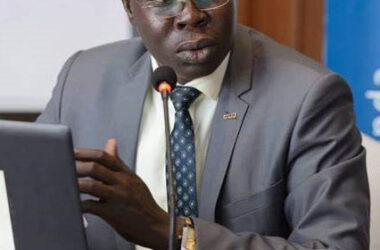By Philip Buda Ladu
National Council of Ministers has endorsed the decision of the Presidency and parties signatory to the 2018 revitalized peace agreement to extend the transitional period for an additional two years and also postponing elections until December 22, 2026.
On Friday, September 13, 2024, President Salva Kiir, alongside his five deputies and senior representatives from political parties in the peace agreement, reached a unanimous consensus to delay the elections, originally scheduled for December 2024.
The cabinet held an extraordinary meeting on Saturday, September 14, 2024, and formally ratified the presidency’s decision to postpone the long-awaited elections and approved extension of the interim unity government’s tenure.
Jacob Maiju Korok, the deputy national minister of information and acting government spokesman, briefed the media shortly after the Saturday meeting.
“The Council of Ministers listened to a memo from Hon. Dr. Martin Elia Lomuro, the minister of Cabinet Affairs, on the endorsement of the decision of the Agreement on the Resolution of the Conflict in the Republic of South Sudan (R-ARCSS) for the postponement, delay of elections, and extension of the transitional period,” Korok told reporters.
Korok underscored that the parties’ signatories to the agreement believe it is extremely important to maintain the peace, security, and relative stability anchored by the revitalized peace agreement.
“This is an initiative initiated by the High-level standing committee on roadmap implementation and it is now endorsed by the Council of Ministers. And it will be taken to R-JMEC maybe on Tuesday and it will be discussed and when it is passed then automatically it will be forwarded for endorsement and blessing by the parliament. So that’s actually the process,” Korok explained.
Speaking to the media on Friday, Martin Elia Lomuro, the Minister of Cabinet Affairs, explained the reasons for the extension of the transitional period, stating that it was based on recommendations from various electoral institutions and the security sector.
Lomuro highlighted that reports from the National Constitution Review Commission (NCRC), the National Elections Commission (NEC), the National Political Parties Council (PPC), and the Bureau of Statistics (NBS) informed the decision.
Each of these bodies provided recommendations that contributed to the presidency’s conclusion on the way forward to conclude the transition effectively.
“One, we didn’t complete all the tasks that are critical for the conduct of elections in December 2024; two, they needed us to approve extensions, first to postpone elections and to extend the transitional period as a result of the postponement,” Lomuro highlighted the recommendation on which the presidency based their decision.
Key provisions of the revitalized agreement remain largely unfulfilled — including the creation of a permanent national constitution and the unification of forces and other electoral provisions– leaving the international community increasingly frustrated.
The cabinet affairs minister stated that as a result of this endorsement of postponement, they have agreed to reset the transitional period to begin on February 22, 2025.
Lomuro further emphasized that they will use the few months remaining under the current transitional period to mobilize funds so that they can now be sure that they will implement the revitalized peace agreement according to the new timetable.
He proclaimed this extension was done for the benefit of the country and to make sure that the peace that has been achieved as a result of the revitalized agreement is maintained and sustained for the welfare of the people of South Sudan.
“So that by the time people go for elections, we are sure that we now only have one national security sector, all the parties are registered, and all the institutions are functioning, and we’re going to elections in a situation where the environment is conducive to free and fair elections,” Lomuro added.
For his part, the Presidential Adviser on National Security Tut Gatluak Manime stressed that the extension would provide an opportunity for the parties to complete critical processes before the new election date of December 22, 2026.
South Sudan has never had elections since gaining its independence from the Republic of Sudan in July 2011.


